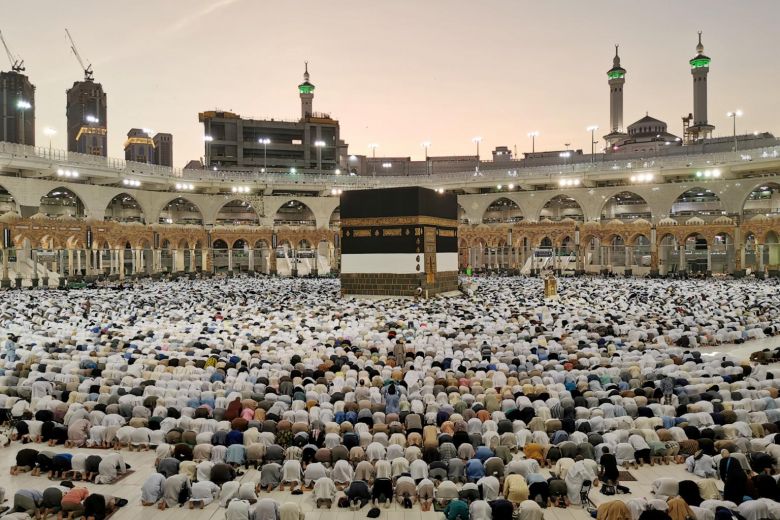More than two million faithful begin Haj pilgrimage
Fri 09 Aug 2019, 17:29:57

More than two million Muslims begin the annual Haj on Friday.
The Haj, one of the world's largest religious gatherings, is one of Islam's five pillars and must be undertaken by all Muslims with the means at least once in their lives.
It consists of a series of religious rites which are completed over five days in Islam's holiest city and its surroundings in western Saudi Arabia.
In total some 2.5 million faithful, the majority from abroad, will undertake the pilgrimage this year, according to local media.
"More than 1.8 million visas were delivered online without the need for middlemen. It's a success," said Haj ministry official Hatim bin Hassan Qadi.
"We feel cleansed by achieving this pillar of Islam and meeting people from across the world. It's marvellous," said Mohamed Jaafar, a 40-year-old Egyptian pilgrim.
"It's an indescribable feeling. You have to live it to understand it," said an Algerian in his fifties completing the pilgrimage for the first time.
"It's a golden opportunity and moment," said his female companion.
Muslims around the world pray towards the Holy Kaaba, which is located in the Grand Mosque, and pilgrims walk around it seven times.
Worshippers will participate in weekly prayers late on Friday morning.
During the pilgrimage separate streams of men and
women, grouped by nationality, will travel to the holy city of Mina on foot or in buses provided by the authorities.
women, grouped by nationality, will travel to the holy city of Mina on foot or in buses provided by the authorities.
A district of the holy city Makkah, Mina sits in a narrow valley surrounded by rocky mountains and is transformed each year into a vast encampment for pilgrims.
A total of "350,000 air-conditioned tents have been pitched," said a Saudi official.
Worshippers will climb Mount Arafat, also known as the "Mount of Mercy", for hours of prayers and the Holy Quran recitals.
After descending, they will gather pebbles and perform the symbolic "stoning of the devil".
That marks the beginning of Eid Al Adha, the festival of sacrifice, marked on Sunday.
Pilgrims then return to the Grand Mosque to perform a final "tawaf" or walk around the Holy Kaaba.
As in previous years, Saudi authorities have been at pains to stress that the Haj is a religious event and have sought to prevent its politicisation.
Riyadh claimed its two-year embargo on Doha - which includes restrictions on Qataris travelling to the Kingdom - would not affect the pilgrimage.
But Haj official Hassan Qadi acknowledged "very few Qataris have come to holy city of Makkah for the pilgrimage".
The scale of the pilgrimage presents vast security and logistical challenges, with tens of thousands of safety officers deployed.
No Comments For This Post, Be first to write a Comment.
Most viewed from International
Most viewed from World
AIMIM News
Latest Urdu News
Most Viewed
May 26, 2020
Do you think Canada-India relations will improve under New PM Mark Carney?
Latest Videos View All
Like Us
Home
About Us
Advertise With Us
All Polls
Epaper Archives
Privacy Policy
Contact Us
Download Etemaad App
© 2025 Etemaad Daily News, All Rights Reserved.

.jpg)
.jpg)
.jpg)






.jpg)


.jpg)
.jpg)
.jpg)
.jpg)
.jpg)
.jpg)
.jpg)
.jpg)
.jpg)
.jpg)
.jpg)
.jpg)

















